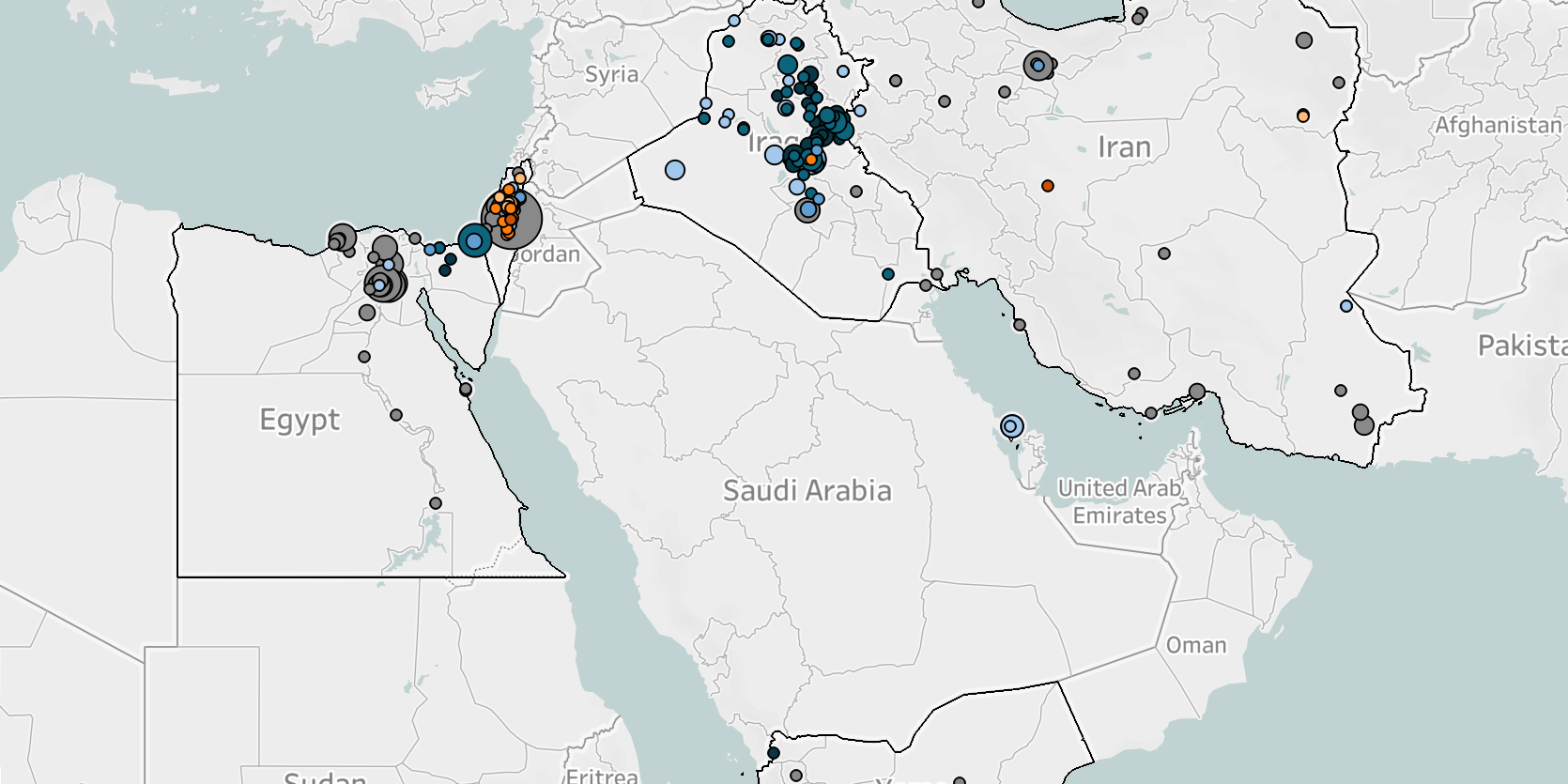Last week across the Middle East and North Africa, a lull in events was observed in the first week of June. In Yemen, morality-related events in connection to the selling, consuming, or making of alcohol were reported. Meanwhile, in Iran, the curtailing of the rights of Baha’is continues with three people of the Baha’i faith being sentenced to prison. Following weeks of heightened tension in Palestine and Israel, last week signaled a return to pre-Ramadan levels of activity. In Palestine, at least two senior Hamas and Palestinian Islamic Jihad (PIJ) leaders were arrested. In Israel, the possible end of Prime Minister Benjamin Netanyahu’s government and right-wing coalition led to an uproar among right-wing religious groups. In Bahrain, the US diplomatic mission’s symbolic act of celebrating LGBT pride month led to condemnation by Islamic clerics in the country. Finally, in Egypt, Prime Minister Mostafa Madbouly announced the continued ban on religious ceremonies, weddings, and funerals as part of the government’s efforts to curb the spread of the coronavirus. He did, however, extend opening hours for commercial venues.
In Yemen, arrest campaigns against alcohol consumers, makers, and sellers picked up once again. In Aden, Security Belt Forces stormed a local manufacturing liquor factory and arrested three citizens believed to be the owners (Aden al Ghad, 3 June 2021) (for more on the Security Belt Forces, see this ACLED piece). In Al Mukalla, the forces of the Department of Narcotic Controls raided a hotel and arrested two civilians for possession of hashish (hash) and for drinking alcohol (Nukhba Hadramawt, 31 May 2021). Additionally, in Ad Dali governorate, a citizen was sentenced to flogging by pro-Houthi authorities after he was accused of drinking alcohol (Al Mashhad Al Yemeni, 1 June 2021). This spike in liquor-related arrests first started in April right before the start of Ramadan, but continued and increased over the last week. It is most often reported in pro-Hadi areas.
While the arrests of Baha’i citizens in Iran seem to have slowed down since the start of May, Iranian authorities have begun to try and sentence those arrested over the past few months. The latest sentencing took place last week in Tehran, where four Baha’i citizens were each sentenced to three years of prison on the charge of “membership in an illegal organization to disrupt national security” (Human Rights Activists in Iran, 30 May 2021).
Meanwhile, in Palestine, as events return to their pre-Ramadan levels, a wave of arrests of senior leaders of both Hamas and PIJ is underway. Last week, on 30 May, Sheikh Kheder Adnan, a senior leader in PIJ, was arrested in Nablus for unspecified reasons (Anadolu Agency, 30 May 2021). A couple of days later, in Ramallah, Sheikh Jamal Al Tawil, a senior Hamas commander, was arrested for “encouraging recent riots and working to revive Hamas’s Ramallah headquarters” (Time of Israel, 2 June 2021). At Al Aqsa, Israeli settlers restarted their tours of Al Aqsa mosque after being denied entry by Israeli authorities for 20 days due to the mosque becoming a flashpoint for clashes during Ramadan.
In Israel, the potential dissolution of Prime Minister Benjamin Netanyahu’s government led to protests by many right-wing religious groups. Many right-wing activists, as well as leaders of the Religious Zionism Party, protested outside the homes of Yamina party members (Times of Israel, 3 June 2021). They called on party members to oppose the proposed government that would see their party leader, Naftali Bennett, and liberal-secular Yesh Atid party leader, Yair Lapid, rotate as prime minister.
In Bahrain, the US diplomatic mission’s celebration of LGBT pride month led to some political ramifications, which are still unfolding. Last week, 38 Bahraini Islamic clerics condemned the US diplomatic mission for supporting the LGBT community by flying the rainbow flag, a symbol of the LGBT community, on the embassy building. The clerics consider the symbolic act to be “a challenge to the foundations, morals, and norms of the people of Bahrain” and condemn the promotion of these “disgraceful acts” (Bahrain Revolution, 3 May 2021).
Lastly, in Egypt, Prime Minister Mostafa Madbouly announced an extension of the opening hours for commercial venues starting 1 June, thus ending a three-week period in which facilities closed at 9pm. However, the ban on weddings, funerals, and other religious ceremonies, as part of the government’s efforts to curb the spread of the coronavirus, will continue (Al Masry Al Youm, 31 May 2021).
All ACLED-Religion pilot data are available for download through the ACLED-Religion export tool. Explore the latest data with the interactive ACLED-Religion dashboard.






